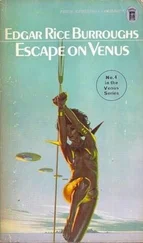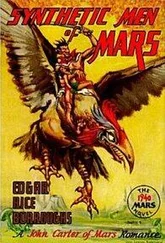Edgar Burroughs - Pirates of Venus
Здесь есть возможность читать онлайн «Edgar Burroughs - Pirates of Venus» весь текст электронной книги совершенно бесплатно (целиком полную версию без сокращений). В некоторых случаях можно слушать аудио, скачать через торрент в формате fb2 и присутствует краткое содержание. Жанр: Фантастика и фэнтези, на английском языке. Описание произведения, (предисловие) а так же отзывы посетителей доступны на портале библиотеки ЛибКат.
- Название:Pirates of Venus
- Автор:
- Жанр:
- Год:неизвестен
- ISBN:нет данных
- Рейтинг книги:4 / 5. Голосов: 1
-
Избранное:Добавить в избранное
- Отзывы:
-
Ваша оценка:
- 80
- 1
- 2
- 3
- 4
- 5
Pirates of Venus: краткое содержание, описание и аннотация
Предлагаем к чтению аннотацию, описание, краткое содержание или предисловие (зависит от того, что написал сам автор книги «Pirates of Venus»). Если вы не нашли необходимую информацию о книге — напишите в комментариях, мы постараемся отыскать её.
Pirates of Venus — читать онлайн бесплатно полную книгу (весь текст) целиком
Ниже представлен текст книги, разбитый по страницам. Система сохранения места последней прочитанной страницы, позволяет с удобством читать онлайн бесплатно книгу «Pirates of Venus», без необходимости каждый раз заново искать на чём Вы остановились. Поставьте закладку, и сможете в любой момент перейти на страницу, на которой закончили чтение.
Интервал:
Закладка:
The Amtorians do not knock on a door—they whistle. It is rather an improvement, I think, upon our custom. One has one's own distinctive whistle. Some of them are quite elaborate airs. One soon learns to recognize the signals of one's friends. A knock merely informs you that some one wishes to enter; a whistle tells you the same thing and also reveals the identity of your caller.
My signal, which is very simple, consists of two short low notes followed by a higher longer note; and as I stood before the door of Duare and sounded this, my mind was not upon the princess within but upon another girl far away in the tree city of Kooaad , in Vepaja. She was often in my mind—the girl whom I had glimpsed but twice, to whom I had spoken but once and that time to avow a love that had enveloped me as completely, spontaneously, and irrevocably as would death upon some future day.
In response to my signal a soft, feminine voice bade me enter. I stepped into the room and faced Duare. At sight of me her eyes went wide and a quick flush mounted her cheeks. "You!" she exclaimed.
I was equally dumfounded—she was the girl from the garden of the jong!
Chapter 12—"A Ship!"
WHAT a strange contretemps! Its suddenness left me temporarily speechless; the embarrassment of Duare was only too obvious. Yet it was that unusual paradox, a happy contretemps —for me at least.
I advanced toward her, and there must have been a great deal more in my eyes than I realized, for she shrank back, flushing even more deeply than before.
"Don't touch me!" she whispered. "Don't dare!"
"Have I ever harmed you?" I asked.
That question seemed to bring her confidence. She shook her head. "No," she admitted, "you never have—physically. I sent for you to thank you for the service you have already rendered me; but I did not know it was you . I did not know that the Carson they spoke of was the man who—" She stopped there and looked at me appealingly.
"The man who told you in the garden of the jong that he loved you," I prompted her.
"Don't!" she cried. "Can it be that you do not realize the offensiveness, the criminality of such a declaration?"
"Is it a crime to love you?" I asked.
"It is a crime to tell me so," she replied with something of haughtiness.
"Then I am a confirmed criminal," I replied, "for I cannot help telling you that I love you, whenever I see you."
"If that is the case, you must not see me again, for you must never again speak those words to me," she said decisively. "Because of the service you have rendered me, I forgive you your past offenses; but do not repeat them."
"What if I can't help it?" I inquired.
"You must help it," she stated seriously; "it is a matter of life and death to you."
Her words puzzled me. "I do not understand what you mean," I admitted.
"Kamlot, Honan , any of the Vepajans aboard this ship would kill you if they knew," she replied. "The jong, my father, would have you destroyed upon our return to Vepaja—it would all depend upon whom I told first."
I came a little closer to her and looked straight into her eyes. "You would never tell," I whispered.
"Why not? What makes you think that?" she demanded, but her voice quavered a little.
"Because you want me to love you," I challenged her.
She stamped her foot angrily. "You are beyond reason or forbearance or decency!" she exclaimed. "Leave my cabin at once; I do not wish ever to see you again."
Her bosom was heaving, her beautiful eyes were flashing, she was very close to me, and an impulse seized me to take her in my arms. I wanted to crush her body to mine, I wanted to cover her lips with kisses; but more than all else I wanted her love, and so I restrained myself, for fear that I might go too far and lose the chance to win the love that I felt was hovering just below the threshold of her consciousness. I do not know why I was so sure of that, but I was. I could not have brought myself to force my attentions upon a woman to whom they were repugnant, but from the first moment that I had seen this girl watching me from the garden in Vepaja, I had been impressed by an inner consciousness of her interest in me, her more than simple interest. It was just one of those things that are the children of old Chand Kabi's training, a training that has made me infinitely more intuitive than a woman. "I am sorry that you are sending me away into virtual exile," I said. "I do not feel that I deserve that, but of course the standards of your world are not the standards of mine. There, a woman is not dishonored by the love of a man, or by its avowal, unless she is already married to another," and then of a sudden a thought occurred to me that should have occurred before. "Do you already belong to some man?" I demanded, chilled by the thought. "Of course not!" she snapped. "I am not yet nineteen." I wondered that it had never before occurred to me that the girl in the garden of the jong might be already married.
I did not know what that had to do with it, but I was glad to learn that she was not seven hundred years old. I had often wondered about her age, though after all it could have made no difference, since on Venus, if anywhere in the universe, people are really no older than they look—I mean, as far as their attractiveness is concerned.
"Are you going?" she demanded, "or shall I have to call one of the Vepajans and tell them that you have affronted me?"
"And have me killed?" I asked. "No, you cannot make me believe that you would ever do that."
"Then I shall leave," she stated, "and remember that you are never to see me or speak to me again."
With that parting and far from cheering ultimatum she quit the room, going into another of her suite. That appeared to end the interview; I could not very well follow her, and so I turned and made my way disconsolately to the captain's cabin in the tower.
As I thought the matter over, it became obvious to me that I not only had not made much progress in my suit, but that there was little likelihood that I ever should. There seemed to be some insuperable barrier between us, though what it was I could not imagine. I could not believe that she was entirely indifferent to me; but perhaps that was just a reflection of my egotism, for I had to admit that she had certainly made it plain enough both by words and acts that she wished to have nothing to do with me. I was unquestionably persona non grata .
Notwithstanding all this, or maybe because of it, I realized that this second and longer interview had but served to raise my passion to still greater heat, leaving me in a fine state of despair. Her near presence on board the Sofal was constantly provocative, while her interdiction of any relations between us only tended to make me more anxious to be with her. I was most unhappy, and the monotony of the now uneventful voyage back toward Vepaja offered no means of distraction. I wished that we might sight another vessel, for any ship that we sighted would be an enemy ship. We were outlaws, we of the Sofal —pirates, buccaneers, privateers. I rather leaned toward the last and most polite definition of our status. Of course we had not as yet been commissioned by Mintep to raid shipping for Vepaja, but we were striking at Vepaja's enemies, and so I felt that we had some claim upon the dubious respectability of privateerism. However, either of the other two titles would not have greatly depressed me. Buccaneer has a devil-may-care ring to it that appeals to my fancy; it has a trifle more haut ton than pirate.
There is much in a name. I had liked the name of the Sofal from the first. Perhaps it was the psychology of that name that suggested the career upon which I was now launched. It means killer. The verb meaning kill is fal . The prefix so has the same value as the suffix er in English; so sofal means killer. Vong is the Amtorian word for defend; therefore, Sovong , the name of our first prize, means defender; but the Sovong had not lived up to her name.
Читать дальшеИнтервал:
Закладка:
Похожие книги на «Pirates of Venus»
Представляем Вашему вниманию похожие книги на «Pirates of Venus» списком для выбора. Мы отобрали схожую по названию и смыслу литературу в надежде предоставить читателям больше вариантов отыскать новые, интересные, ещё непрочитанные произведения.
Обсуждение, отзывы о книге «Pirates of Venus» и просто собственные мнения читателей. Оставьте ваши комментарии, напишите, что Вы думаете о произведении, его смысле или главных героях. Укажите что конкретно понравилось, а что нет, и почему Вы так считаете.









